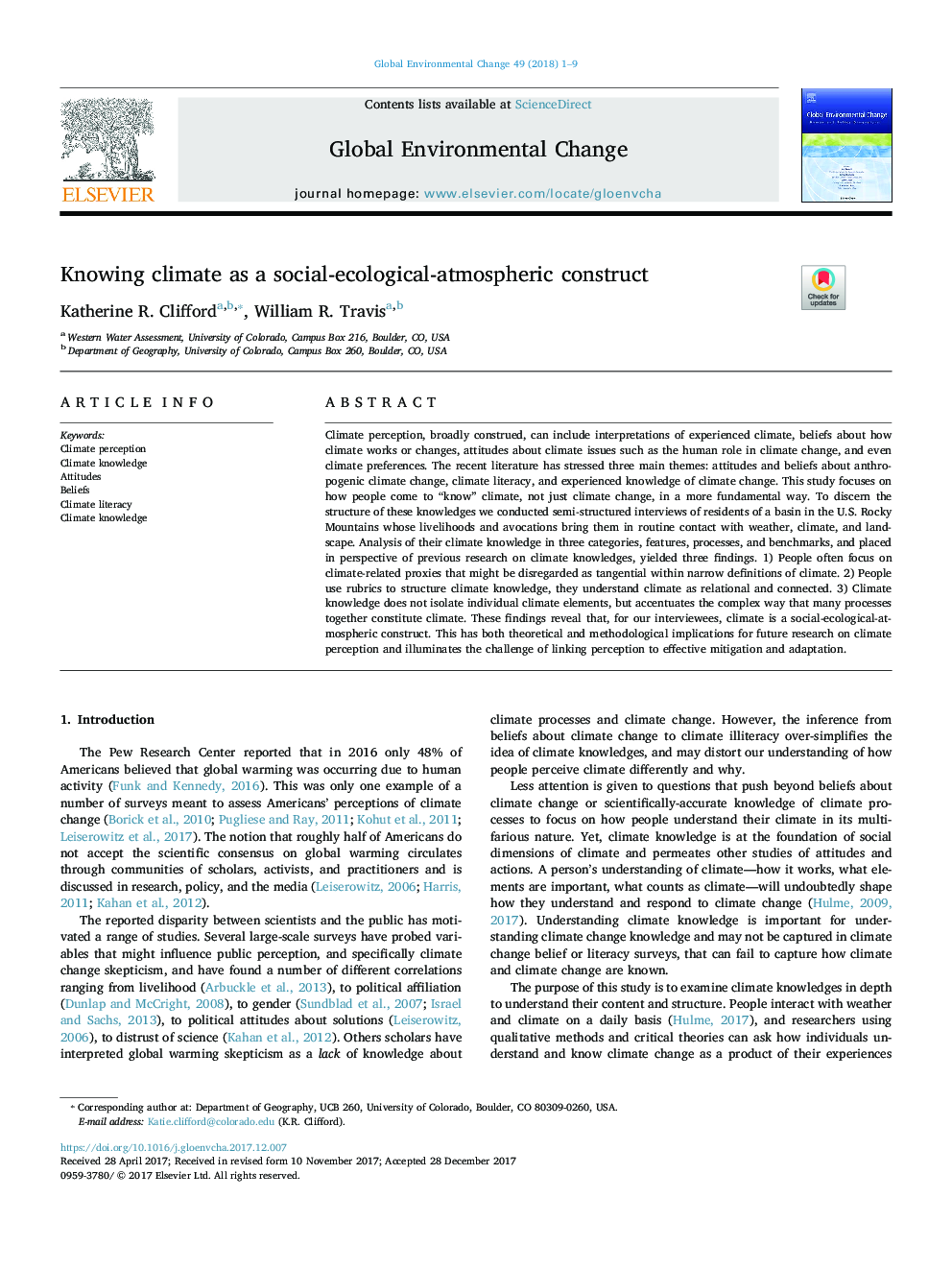| Article ID | Journal | Published Year | Pages | File Type |
|---|---|---|---|---|
| 7468950 | Global Environmental Change | 2018 | 9 Pages |
Abstract
Climate perception, broadly construed, can include interpretations of experienced climate, beliefs about how climate works or changes, attitudes about climate issues such as the human role in climate change, and even climate preferences. The recent literature has stressed three main themes: attitudes and beliefs about anthropogenic climate change, climate literacy, and experienced knowledge of climate change. This study focuses on how people come to “know” climate, not just climate change, in a more fundamental way. To discern the structure of these knowledges we conducted semi-structured interviews of residents of a basin in the U.S. Rocky Mountains whose livelihoods and avocations bring them in routine contact with weather, climate, and landscape. Analysis of their climate knowledge in three categories, features, processes, and benchmarks, and placed in perspective of previous research on climate knowledges, yielded three findings. 1) People often focus on climate-related proxies that might be disregarded as tangential within narrow definitions of climate. 2) People use rubrics to structure climate knowledge, they understand climate as relational and connected. 3) Climate knowledge does not isolate individual climate elements, but accentuates the complex way that many processes together constitute climate. These findings reveal that, for our interviewees, climate is a social-ecological-atmospheric construct. This has both theoretical and methodological implications for future research on climate perception and illuminates the challenge of linking perception to effective mitigation and adaptation.
Related Topics
Life Sciences
Environmental Science
Environmental Science (General)
Authors
Katherine R. Clifford, William R. Travis,
